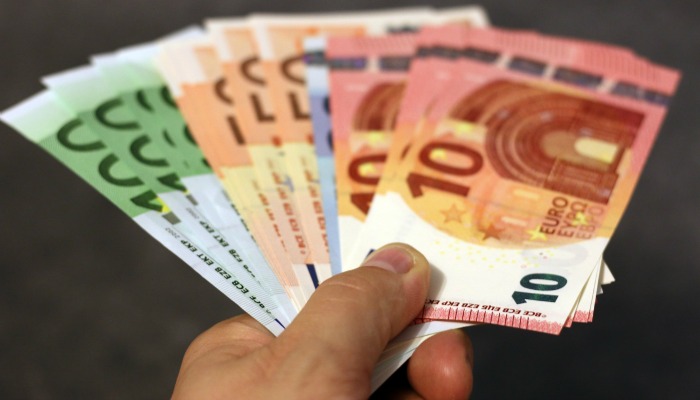- Abolish Dual Forex Rates, Economists, Manufacturers Tell CBN
Economists and manufacturers have joined the call for the abolition of the dual exchange rate policy operating in Nigeria, adding that it is a breeding ground for corruption.
They suggested floating of the naira so that everybody could buy the dollar at the same rate.
A leading manufacturer who declined to be named told our correspondent that the system of dual exchange rate was a very corrupt one that made millionaires out of a few Nigerians and impoverished many.
He said experience had taught him that the dual exchange rate regime was fraught with corruption.
“Since most people want to access forex at the official rate, there is usually a long queue that lasts for months, but you can avoid this hurdle by parting with a percentage of the money you want to access,” he said.
A key operator in the manufacturing sector, Chief Eric Umeofia , accused the CBN of exploiting the dual forex regime to allocate forex to cronies of the bank and importers of frozen fish while local manufacturers were forced to buy dollars at exorbitant black market rates.
He supported the claim with documents showing forex utilisation from one of the commercial banks.
Recently, the Attorney General of the Federation, Mr. Abubakar Malami, was reported to have observed some irregularities in the CBN’s forex allocations.
The apex bank had defended the discrepancies by explaining that they were typographical errors from the commercial banks who published the allocations.
A former CBN governor and the Emir of Kano, Alhaji Muhammadu Sanusi, had argued that no economy could thrive with dual/multiple forex rates.
A professor of Economics from the University of Uyo, Professor Leo Ukpong, also advised against the practice of maintaining a dual forex exchange rate.
He said, “Dual exchange rate regime creates room for illegal profit making by those who have access to buy at the lower (the CBN official rate) and turn around to sell at the high (parallel market) rate.
“This practice ends up increasing the cost of the FX to legitimate businesses that play by the rule; increases the cost of consumer goods to the larger population; causes the FX shortages due to hoarding; and distorts the true value of exchange rate.
“The CBN cannot design or implement any efficient or meaningful foreign exchange policy until we get rid of dual (or multiple) exchange rate regime.”
Also, a recent article by Bloomberg attributed the nation’s current woes to the dual forex regime, noting that it had refused to allow its currency to trade at its market value.
The article titled, “A tale of two currencies: Egypt sets itself apart from Nigeria,” drew a comparison between Nigeria and Egypt, two countries who were in the same situation in early November, crying out for dollars to revive their sinking economies and trying to curb rampant currency-trading on the black market.
According to the report, Egypt’s strategy was to ditch a currency peg, leaving its pound open to market forces.
It read in part, “Egypt is still short of dollars, but the situation is changing, and investors are gradually returning.
“Nigeria, in contrast, isn’t letting the naira trade at its market value, insisting that is the only way to protect the poor from a further surge in inflation, which is already at the highest level since 2005. Traders argue that it’s left the currency overvalued and say they’ll avoid Nigerian local markets until it weakens.”
It added that Egypt’s strategy had caused the Egyptian pound to gain 16 per cent against the dollar even as the naira fell 40 per cent in value against the greenback.
An economic strategist with the Manufacturers Association of Nigeria, Mr. Ambrose Oruche, supported floating of the naira, saying, “Allow naira to find its level. It will allow for more supply because there will be free entry and exit. More people will come into the market to trade. In the short run, there will be inflation but it will eventually ease off.
All the efforts geared at protecting the naira can only have a short-term effect, it is not sustainable. The naira will still lose value in the long run while the cost of living for the ordinary man continues to go up.
The National Bureau of Statistics in its January report stated that the inflation rate had gone up to 18.72.
Currently, the prices of consumer goods, according to the Chairman, Ikeja Shop Owners’ Association, Mr. John Okonkwo, increase on a daily basis.

 Billionaire Watch3 weeks ago
Billionaire Watch3 weeks ago
 Startups4 weeks ago
Startups4 weeks ago
 News4 weeks ago
News4 weeks ago
 News4 weeks ago
News4 weeks ago
 Bitcoin4 weeks ago
Bitcoin4 weeks ago
 Naira4 weeks ago
Naira4 weeks ago
 Forex3 weeks ago
Forex3 weeks ago
 Treasury Bills4 weeks ago
Treasury Bills4 weeks ago
























